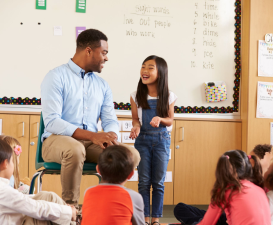In today's digital age, digital learning for primary school students has become an important trend in the development of education. As the two key environments for children's growth, how to effectively cooperate with the school and jointly promote children's digital learning has become the focus of many parents and educators.In the digital school environment, parental involvement has indeed shown an upward trend, mainly due to the innovative application of technology and the optimization of the home-school collaboration mechanism.

The role of the family in digital learning for primary school students
The family is the first place where children are exposed to digital learning. Parents play an important role in their children's digital learning. First of all, parents need to establish a correct concept of digital learning and realize the importance of digital learning for their children's future growth. Secondly, parents need to provide their children with a good digital learning environment, including appropriate hardware equipment and software resources, as well as a quiet and comfortable learning space. In addition, parents also need to guide their children to develop good digital learning habits, such as arranging study time reasonably, protecting eyesight, and avoiding addiction to the Internet.
In the process of children's digital learning, parents also need to actively participate and learn and explore with their children. For example, parents can use digital resources with their children to learn and solve problems encountered in learning together. This can not only enhance the parent-child relationship, but also help children better understand and master knowledge.
The role of the school in digital learning for primary school students
As the main place for children's education, the school has an important responsibility for the digital learning of primary school students. First of all, schools need to develop scientific digital learning plans to ensure that students can receive systematic and comprehensive digital education in the classroom. At the same time, schools also need to provide teachers with training and support for digital teaching to help them master the methods and skills of digital teaching.
In the process of digital learning, schools also need to focus on cultivating students' autonomous learning ability. For example, schools can guide students to actively participate in digital learning through online learning, flipped classrooms and other teaching modes, and cultivate their autonomous learning awareness and ability.
In addition, schools also need to maintain close communication and cooperation with parents. Schools can convey the concepts and methods of digital learning to parents through parent meetings, home visits and other means, and guide parents to actively participate in their children's digital learning. At the same time, schools can also provide parents with digital learning resources and guidance to help parents better support their children's digital learning.

How do families and schools cooperate to promote digital learning for primary school students?
Families and schools each play an important role in the digital learning of primary school students, but in order to achieve better results, both parties need to work closely together to form a joint force.
Here are some suggestions:
Establish a good communication mechanism: Families and schools need to communicate regularly to understand the performance and progress of children in digital learning. Both parties can jointly develop a learning plan to ensure that children's digital learning at home and at school can be connected to each other to form an effective learning closed loop.
Share digital resources:
Schools and families can share digital learning resources, such as teaching videos, online courses, etc. This can not only enrich children's learning content, but also improve resource utilization efficiency.
Participate in learning activities together:
Families and schools can jointly organize some digital learning activities, such as online competitions, learning exchanges, etc. This can not only stimulate children's interest in learning, but also enhance the understanding and cooperation between the two parties.
Encourage children to learn independently:
Parents and schools should encourage children to learn independently and cultivate their awareness and ability of independently. Both parties can provide children with appropriate learning guidance and support to help them better master the skills and methods of digital learning.
In short, families and schools are important support forces for primary school students' digital learning. Both parties need to work closely together to provide strong support for children's digital learning. Only in this way can we better adapt to the development needs of the digital age and cultivate a future generation with digital literacy.
